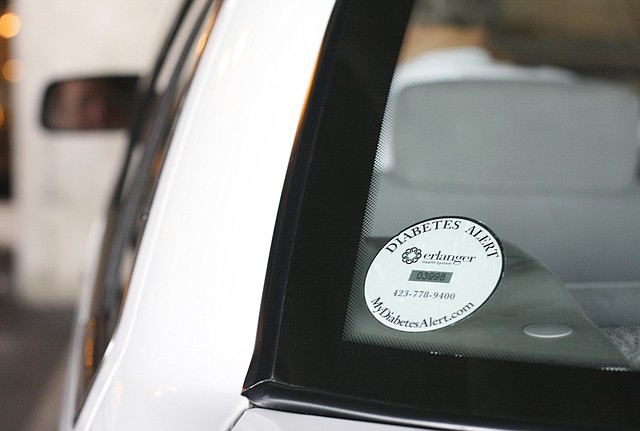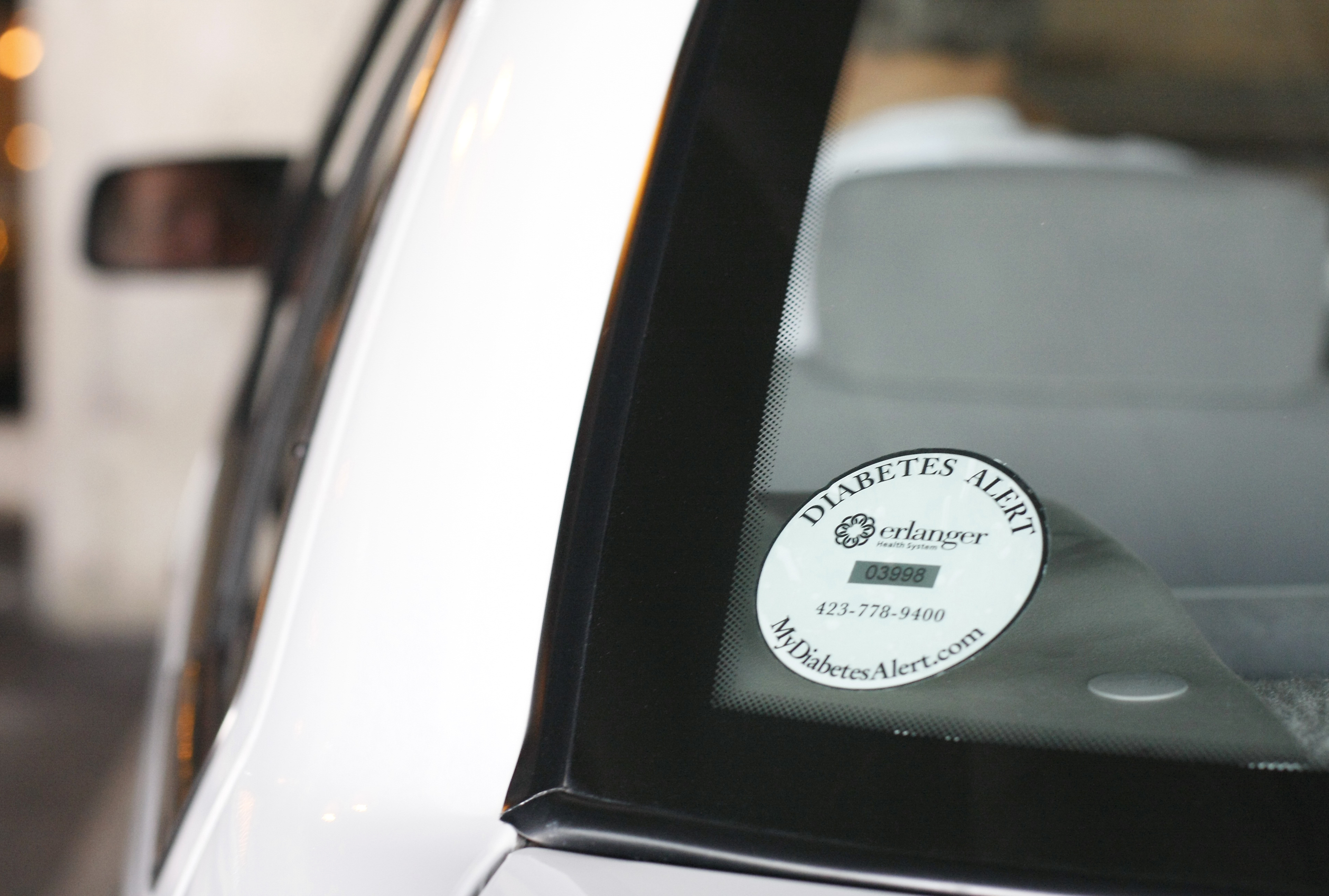Stickers alert police to diabetic condition
Sunday, June 26, 2011
AGENCIES INVOLVED• Bradley County Sheriff's Office• Chattanooga Police Department• Cleveland Police Department• Hamilton County Sheriff's Office
Law enforcement officers see it all the time - swerving drivers nudging up against the double-yellow line or flirting with the shoulder.
Their first thought might be, "Another drunk," but they're not always correct. It could be someone suffering from a diabetic event.
Now Erlanger Health System has partnered with local law enforcement agencies to begin a free Diabetes Alert program. The program offers diabetes patients white, coaster-sized stickers they can place in the rear left windows of their vehicles to warn of their condition.
Organizers said the program is designed to allow law enforcement officers and emergency workers to distinguish between inebriation and illness.
"It just gives them a heads-up that they may have a medical emergency rather than intoxication," said Brenda Ross, manager of rehabilitation and wellness at Erlanger. "But there are situations where they could check for both."
To get a sticker, diabetes patients must get a Diabetes Alert prescription from their physician and report to Erlanger's Chattanooga LifeStyle Center on Market Street.
About 50 people have obtained a sticker, Ross said, but Hamilton County Sheriff's Office spokeswoman Janice Atkinson said deputies haven't been trained about it yet.
"We're working on [scheduling] right now, though," she said Friday.
She said deputies learn how to handle diabetes symptoms in introductory training. The sticker is the "only new thing" in deputies' training, and the program is "basically a refresher" for deputies.
Atkinson said officers will be able to distinguish between a drunken-driving incident and a diabetic event, despite similar behaviors associated with both - "shaky," "nervous," "sweaty" and "confused" are some characteristics of a diabetic event, according to information cards Erlanger distributed to police.
"You have a fruity smell to your breath when you're having [a diabetic] episode," Atkinson said. "We check for things like that."
About 11 percent of county residents report having diabetes, according to the most recent Hamilton County Community Health Data Profile, released in November.
As part of the program, law enforcement are issued information cards that provide treatment options for diabetics - glucose tablets, hard candies, soda and fruit juice to increase blood sugar in patients - as well as "call EMS."
Erlanger did not spend any money on Diabetes Alert, according to hospital spokeswoman Susan Sawyer. She said the program is funded by a grant that originated with the Wellmont Health System in Northeast Tennessee.

